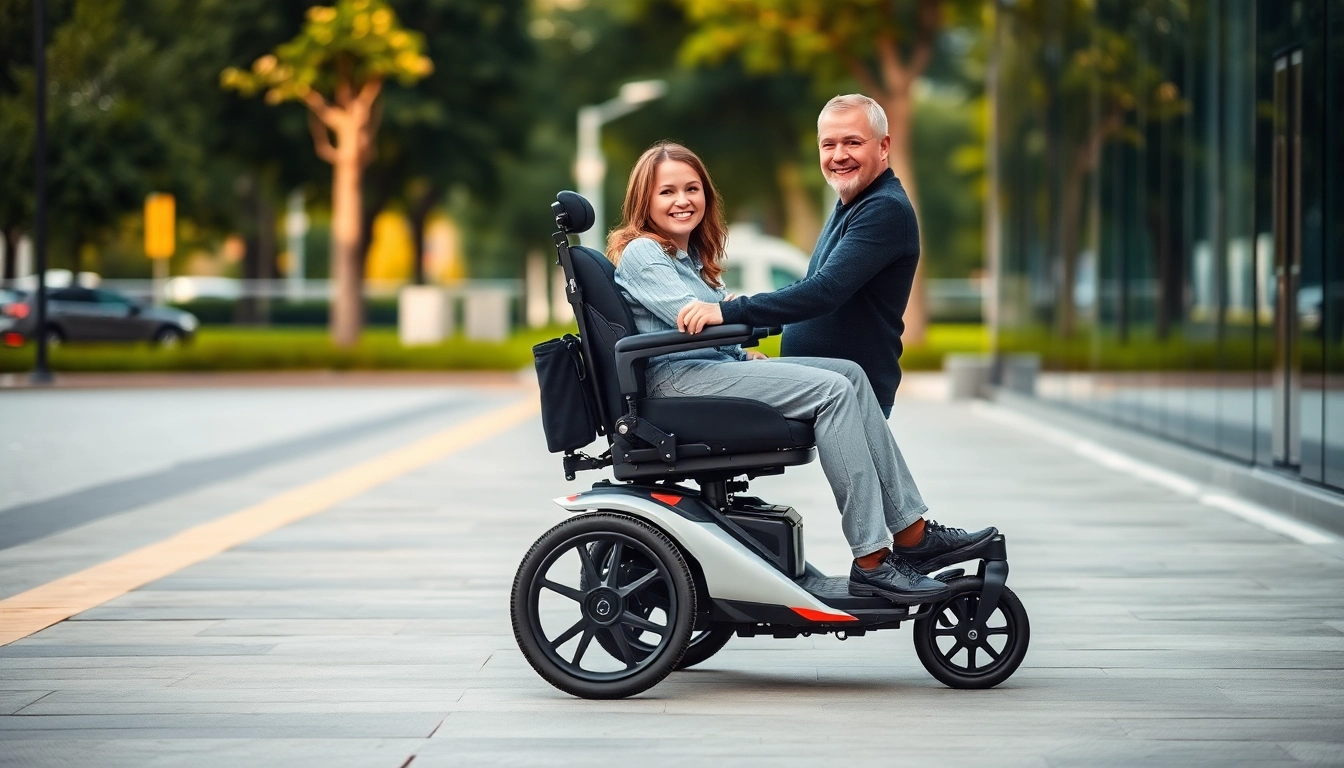Understanding Power Wheelchairs
What is a Power Wheelchair?
A power wheelchair, also known as a power chair, is a mobility device designed for individuals with limited mobility or physical disabilities. Unlike manual wheelchairs that require physical effort to propel, power wheelchairs are powered by electric motors and controlled by a joystick or other control systems. They offer various features, such as adjustable seating, programmable controls, and enhanced maneuverability, making them indispensable for those needing mobility assistance.
Power wheelchairs can vary significantly in design and capabilities, catering to the specific needs of different users. These devices can assist people with various conditions, from spinal cord injuries to degenerative diseases like multiple sclerosis. At TK Care, we provide a range of power wheelchair options, ensuring that every user can find the right fit for their lifestyle and mobility requirements.
Key Benefits of Using a Power Wheelchair
The advantages of power wheelchairs extend beyond mere mobility. Here are some of the key benefits:
- Increased Independence: Power wheelchairs enable users to navigate their environment independently, whether at home or in public spaces.
- Enhanced Comfort: Many models feature advanced ergonomic designs, with adjustable seating and back support to reduce discomfort during prolonged use.
- Better Control: Users can easily operate power wheelchairs using joysticks or alternative control systems designed to suit their abilities.
- Accessibility: These devices can be equipped with various features that improve accessibility, including tilt, recline, and standing options.
- Improved Safety: Power wheelchairs often come with enhanced safety features, such as anti-tip mechanisms and powerful braking systems.
Who Needs a Power Wheelchair?
Power wheelchairs are ideal for individuals with a range of mobility limitations. This includes:
- Individuals recovering from surgery or injury, who may experience temporary mobility challenges.
- People with chronic conditions like muscular dystrophy, multiple sclerosis, or arthritis that progressively affect mobility.
- Senior citizens who find it difficult to navigate without assistance.
- Patients with neurological disorders affecting mobility control, such as Parkinson’s disease or stroke survivors.
- Individuals who need prolonged mobility support for daily activities, such as shopping, socializing, or attending appointments.
Types of Power Wheelchairs Available
Standard Power Wheelchairs
Standard power wheelchairs are versatile and are commonly used for both indoor and outdoor activities. They typically have a sturdy frame, a comfortable seat, and a range of functionalities suited for everyday use. Users appreciate their balance of durability and comfort, making them suitable for various terrains.
Transportable Power Wheelchairs
Transportable power wheelchairs are designed for individuals who frequently travel or need a mobility device that’s easy to transport. These models are lightweight, foldable, and often feature removable batteries, making them convenient for car storage or public transport. Despite their compact nature, they still pack a good range of features.
Heavy-Duty Power Wheelchairs
For users requiring additional support, heavy-duty power wheelchairs offer robust construction and enhanced weight capacities. Designed for durability, these wheelchairs can accommodate larger users and handle more rugged terrain, providing stability and comfort in various environments.
Choosing the Right Features
Battery Life and Range Considerations
When selecting a power wheelchair, it’s crucial to consider battery life and operational range. Depending on the model, power wheelchairs can provide different ranges on a single charge, typically between 10 to 20 miles for standard models. Longer range capabilities are especially important for users planning to travel longer distances without the option of recharging their device.
Customization Options for Power Wheelchairs
The right power wheelchair can be highly customized to accommodate individual needs. Customization can include features like adjustable seat height, cushion types, and accessories such as storage bags, cup holders, and even specialized controls for users with specific disabilities. It’s beneficial to consider your daily routine and specific requirements when exploring customization options.
Safety Features to Look For
Safety should always be a top priority when selecting a power wheelchair. Look for models equipped with:
- Anti-Tip Wheels: These prevent the wheelchair from tipping over on uneven surfaces.
- Speed Limit Controls: This allows users to set a maximum speed to enhance control and safety.
- Automatic Braking Systems: Ensures that the wheelchair stops quickly in emergencies.
- Reflective Tape or Lights: To increase visibility, especially for nighttime use.
Power Wheelchair Maintenance and Care
Regular Maintenance Tips
Proper maintenance will extend the lifespan of a power wheelchair and ensure it operates effectively. Here are some essential maintenance tips:
- Check tire pressure regularly and maintain proper inflation for optimal performance.
- Keep the wheelchair clean and free from dirt and debris that could affect its function.
- Inspect the battery and connections regularly, ensuring they are clean and functioning correctly.
- Schedule periodic professional inspections to catch any potential issues early.
Identifying Common Issues
Users should be aware of common problems that may arise with power wheelchairs, which include:
- Battery issues, such as failure to hold a charge.
- Control malfunctions, causing erratic movements or complete inoperability.
- Mechanical breakdowns, particularly in the wheels or joystick mechanism.
Promptly addressing these issues can help avoid major repairs and ensure continuous mobility.
Finding Professional Repair Services
Finding a reliable service for power wheelchair repairs is crucial. Always look for:
- Technicians certified by the device manufacturer or recognized organizations.
- Local repair shops specializing in mobility devices.
- Customer reviews and testimonials to gauge service reliability.
Financial Assistance and Resources
Insurance Coverage for Power Wheelchairs
Many health insurance policies may cover part or all of the costs associated with power wheelchairs, although eligibility can vary widely. It is advisable to contact your insurance provider to inquire about specific coverage details and necessary documentation for submission.
Government Assistance Programs
In several countries, government programs may assist with the costs of power wheelchairs. These programs often require applications and assessments to verify eligibility based on the user’s medical needs and financial situation. It’s beneficial to research local and national programs that provide mobility aid assistance.
Non-Profit Organizations for Mobility Aid
Various non-profit organizations focus on improving access to mobility aids for individuals in need. These organizations might offer funding, loan programs, or even free power wheelchair distributions. Engaging with these entities can provide crucial support and resources.



